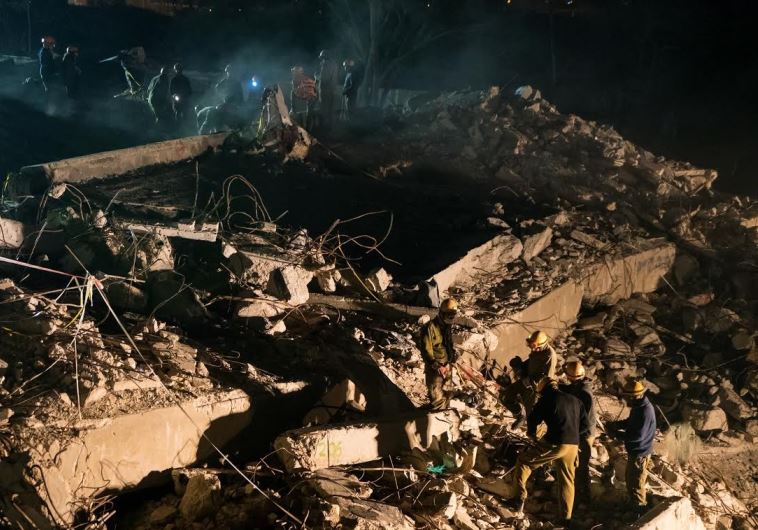As Hezbollah rocket arsenal grows, Israel creates new battalions
Chemical threat has declined, but conventional rocket threat has risen, leading Home Front Command to convert the role of battalions.
 Two new Home Front Command search and rescue battalions training in December (photo credit: IDF SPOKESMAN’S UNIT)Updated:
Two new Home Front Command search and rescue battalions training in December (photo credit: IDF SPOKESMAN’S UNIT)Updated: